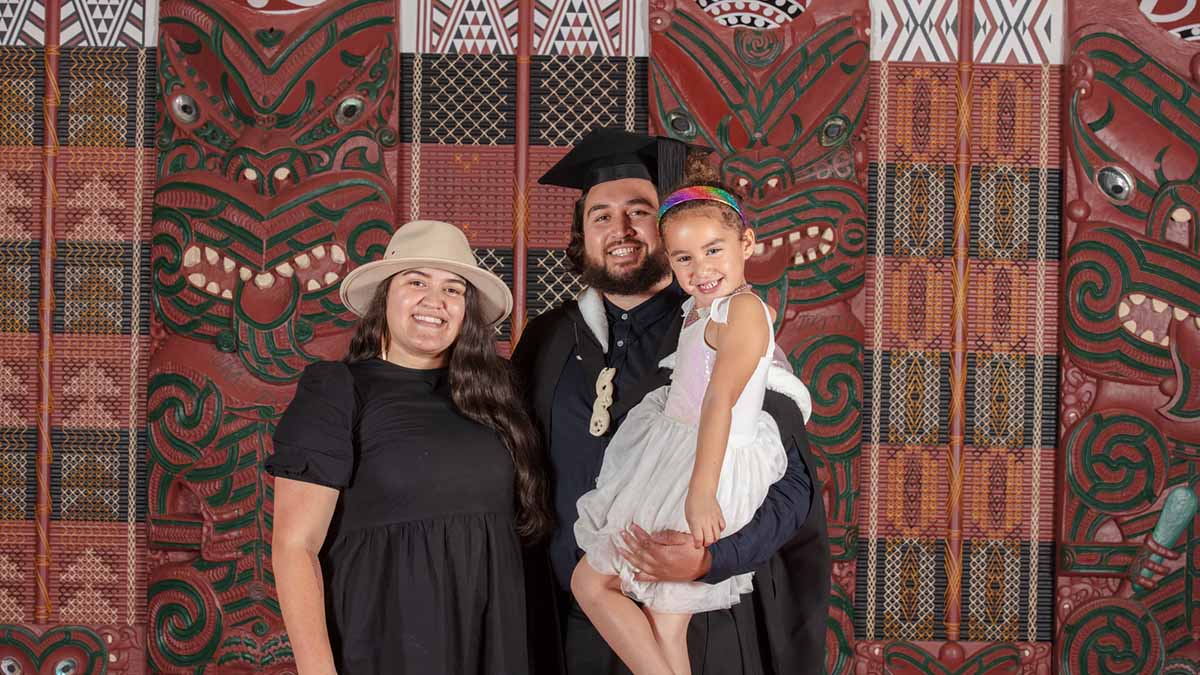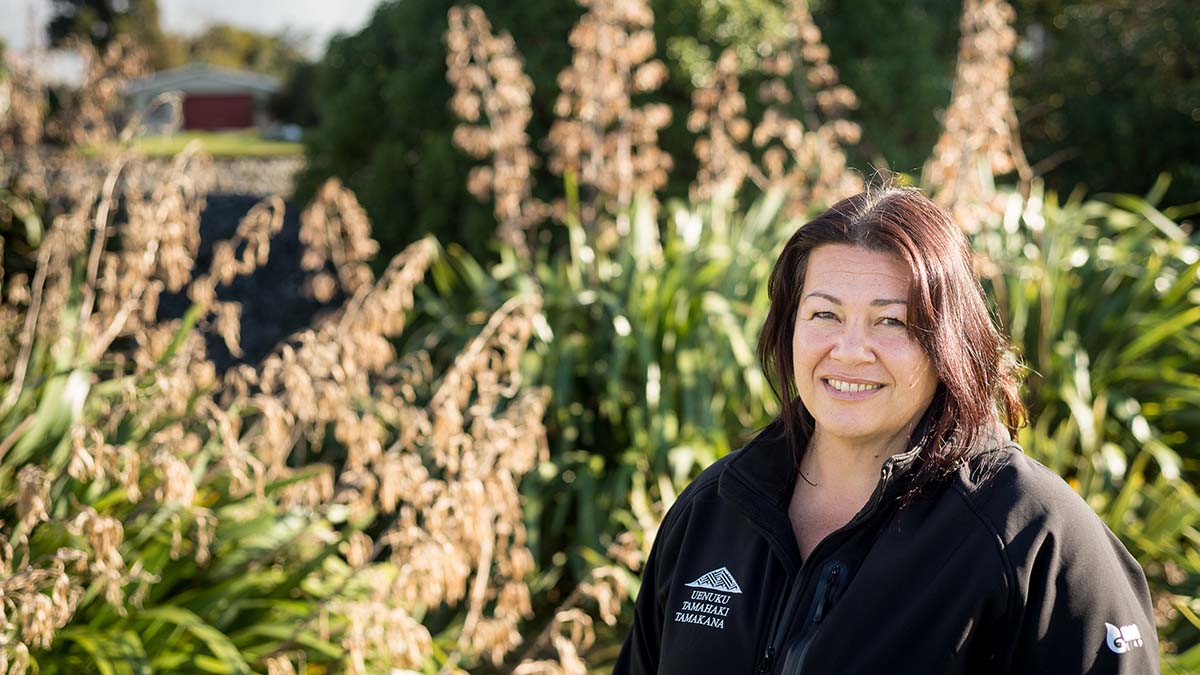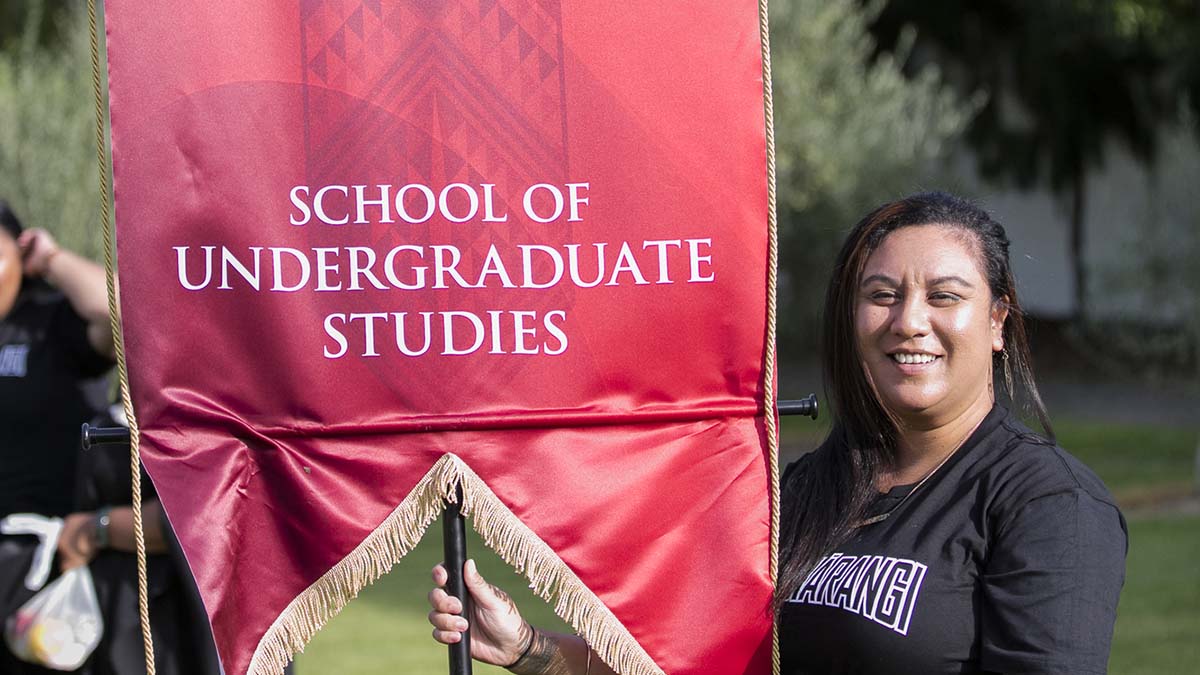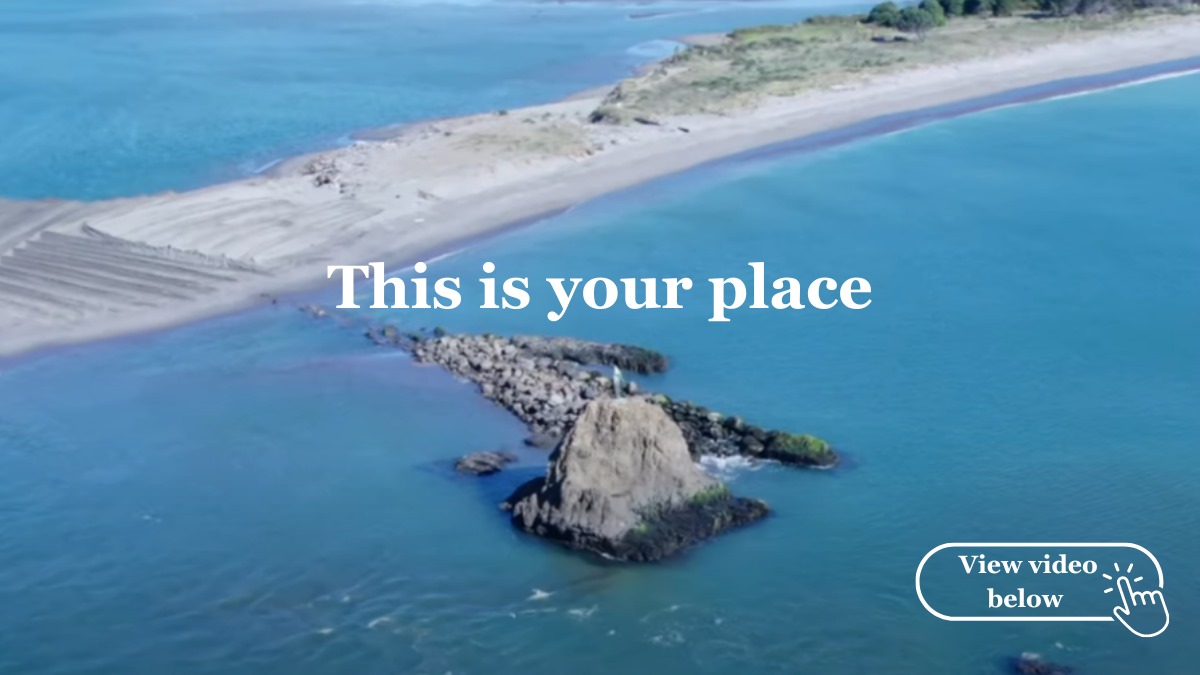Bachelor of Humanities
Te Tohu Toi Tangata: Bachelor of Humanities
Lead change. Think critically. Empower communities.
Shape the future through an indigenous lens and study humanities.
Discover how human thought, culture, and society shape our world with the Bachelor of Humanities (BHUM) at Te Whare Wānanga o Awanuiārangi. This degree empowers you to think critically, communicate effectively, and lead with purpose through Māori and indigenous perspectives.
You’ll examine concepts like truth, equity, and social justice, inspiring you to challenge dominant narratives and contribute meaningfully to whānau, hapū, iwi, and global communities.
This innovative degree empowers you to lead change and transform your thinking. Explore the dynamics of history, sociology, politics, philosophy, Māori & indigenous studies and more leading with indigenous wisdom.
Why Study the Bachelor of Humanities?
Expert Support
Learn from passionate lecturers committed to indigenous and inclusive education in a supportive and inclusive environment.
Flexible Learning
Study online from anywhere in Aotearoa. Join optional face-to-face noho (on-site learning stays).
Interdisciplinary Approach
Explore diverse fields—Māori studies, history, politics, ethics, language, and social justice—while developing critical skills for teaching, advocacy, policy, and research.
Indigenous and Māori-Centric:
Immerse yourself in a programme that champions and integrates Māori and indigenous knowledge across the curriculum.
Career-Ready Graduates:
Gain top skills in critical thinking, research, and communication—qualities sought after by employers.
Pathways to Impact
Graduates of this programme go on to become educators, iwi leaders, researchers, policy advisors, writers, and change-makers in both Māori and mainstream sectors.
What you’ll learn in the Bachelor of Humanities?
- Māori and Indigenous Philosophies
- Critical Theory, History, Sociology & Philosophy
- Politics, Policy, Māori & Indigenous Studies
- Education, Research & Ethics
- Social Justice and Decolonisation
- Research Methods and Academic Writing
Who should apply?
Aspiring Change-Makers
If you want to challenge dominant narratives, advocate for equity, and contribute to social transformation—this degree is for you.
Culturally Grounded Learners
Perfect for those who value te ao Māori, mātauranga Māori, and indigenous knowledge systems, and want to study in a way that reflects their identity and values.
Future Educators, Researchers & Leaders
Whether you're aiming for a career in education, policy, iwi development, or academia, this degree builds the foundational skills to lead and inspire.
Critical Thinkers & Creatives
If you enjoy asking big questions about truth, justice, and society—and want to explore history, philosophy, politics, and more—this programme offers the space to grow intellectually and creatively.
Community-Focused Individuals
Ideal for those who want to make a meaningful impact in their communities through informed, ethical, and culturally responsive leadership.
Career Changers or Lifelong Learners:
Students returning to study, looking to upskill, or seeking a qualification that is both flexible and meaningful.
Remote or Busy Learners:
Those needing a flexible, primarily online programme with optional noho (on-site block learning).
Dates
Sem 1: 02 Feb to 21 Jun 2026, Sem 2: 01 Jul to 20 Nov 2026Duration
3 years full-time study, 40 weeks per year (you must re-enrol each year)Commitment
Online learning, directed and self-directed learning. Two optional face-to-face noho are also offered.Applications close
Sem 1: 02 Feb 2026, Sem 2: 24 Jun 2026Locations
Online and available nationallyRequirements
Select link belowPathway to
Select link belowFees
2026 - Tuition: $7231.00, course related costs: $377.00, Total: $7608.00 (note fees are updated annually)Māori Studies
Core
MAO103 Te Ao Māori: The Māori World
Course Type: Core
Description: This course provides an introduction to traditional Māori society and culture covering areas such as: mythology, migration traditions, social structure, spiritual beliefs, land tenure, marae protocols and oral traditions.
MAO130 Whare Wānanga Development
Course Type: Core
Description: This course analyses the reasons for the establishment of whare wānanga as tertiary institutions by Māori. By exploring social, political, and cultural contexts in Aotearoa, students will examine Māori responses to historical and contemporary provisions of education for Māori.
MAO203 Te Ao Hurihuri: Contemporary Māori Society
Course Type: Core
Description: This course analyses Māori society since the arrival of the first Europeans to the present, examining the social, political and economic effects of colonisation upon Māori people.
MAO104 Elementary Māori Language 1: Te Tipuranga
Course Type: Core
Description: This course develops conversational skills in everyday activities such as habits, routines, events, giving instructions, forms of travel, past and present activities, current events and literature in te reo Māori.
MAO105 Elementary Māori Language 2: Te Tipuranga
Course Type: Core
Description: This course develops communication and conversational skills in making invitations and suggestions, plans for the future, seeking and giving permission, selling and purchasing and Māori tribal and oral traditions.
MAO106 Te Kawa o te Marae. The Protocol of the Marae
Course Type: Core
- Description: The course examines the concepts, practices and philosophies underpinning marae protocol.
Multimedia Graphic Design (Te Tohu Tokorau)
RAU203 Culture and Media: A Critical Study
Course Type: Core
- Description: The course investigates culture’s effects on media and media’s effects on culture. Students will develop an awareness of colonising, decolonising, and indigenising media practices. Students will also develop theoretical frameworks to discuss the future of indigenous media. Issues to be discussed include: the colonising of media as reinforcing the cultural norms and power-relations of one culture over others; representation of indigenous peoples in the media and the effects on people; the decolonising of media as the transformation space of intellectual and cultural property rights; the indigenising of media as media controlled for, by and with indigenous peoples’ values and culture.
Indigenous Business
INDB106 Academic Writing
Course Type: Core
Major title: Indigenous Studies
Description: This course can improve tauira academic writing needed for their courses, in particular, planning and writing essays. The course guides tauira through the process of writing academic expository and argument essays.
It begins with planning using brainstorming including freewriting, mind mapping, listing and outlining. It then moves on to the structure of an essay, developing an introduction with a strong thesis statement, paragraphs including topic sentences with logically developed supporting sentences and conclusions. Linking expressions and cohesive devices develop fluency.
Learning how to use the library and websites to find appropriate academic sources and then integrating and referencing them accurately in essays through summarising and quoting helps tauira avoid plagiarism. The features of argument academic essays are practised: argument, counter-argument and refutation.
- This course also focuses on academic style and examines the key characteristics of academic writing, the kind of writing that is required at the Wānanga and tertiary institutions.
Indigenous Studies
IND101 Introduction to Indigenous Studies
Course Type: Major
Major title: Indigenous Studies
Description: This course introduces the theorists and theories surrounding the development of concepts such as ethnicity, indigeneity, and culture. Students will study the usage of these terms historically and in contemporary contexts.
IND102 Introduction to Indigenous Cultures and Societies
Course Type: Major
Major title: Indigenous Studies
Description: An introduction to indigenous tradition, culture and history, and its relevance in contemporary times. The course will cover origin and migration traditions; cultural knowledge, ethics values and protocols; traditional land ownership and use; the history of indigenous-European contact; indigenous leadership structures; and the Treaty of Waitangi (relevant treaties or legislation that have impacted on other indigenous peoples will be included)
IND201 Indigenous ethnicity and identity
Course Type: Major
Major title: Indigenous Studies
Description: This course aims to provide the student with the skills to compare and contrast the experiences of Māori with other indigenous peoples and examine parallel issues and development pathways. The course focuses on Pasifika nations. However, students may wish to utilise material from their own area, such as Hawai'i, Canada, or the United States.
IND202 Marginalising difference in Māori and Indigenous Societies
Course Type: Major
Major title: Indigenous Studies
Description: The course aims to provide students with the skills to critically examine issues of representation, participation, race and gender in contemporary indigenous societies.
IND203 Indigenous Cultural Heritage
Course Type: Major
Major title: Indigenous Studies
Description: The aim of this course is to provide students with an understanding of cultural heritage as both the physical tangible artefacts and the intangible attributes of a society: a total inter-relationship between natural environment, historic places and objects, people, knowledge, practices, values, beliefs and ethics. The course will draw upon the theoretical and knowledge frameworks that have been developed through the other courses in the Indigenous Major.
IND301 Contemporary Indigenous Society and Culture
Course Type: Major
Major title: Indigenous Studies
Description: This course aims to provide students with the skills to analyse the contemporary issues that are of concern to indigenous peoples: Māori and other non-Māori indigenous peoples. These will include issues of treaties and settlement claims, indigenous group interaction, and building indigenous social capital into the 21st century.
IND302 Applied Indigenous Development
Course Type: Major
Major title: Indigenous Studies
Description: This course aims to broaden student’s knowledge and understanding of development and resource management practices which will enable them to apply what they have learnt immediately to the aligned discipline and/or labour market sector. This is an applied base course which will involve a more practical than theoretical approach to student course learning. As such, students will be provided with real/virtual scenarios and challenges to which they will be expected to demonstrate the ability to apply theory and practical solutions.
IND303 Special Topic in Contemporary Indigenous Culture and Society
Course Type: Major
Major title: Indigenous Studies
- Description: This reading course draws from the work of both indigenous and non-indigenous theorists to critically examine a range of contemporary issues with which indigenous peoples are engaged. Students will study in depth selected topics from the field of indigenous studies through a programme of readings, seminars, and directed research. Students will be supervised by a lecturer in whose area they are studying.
Policy
POL101 Introduction to Indigenous Politics and Development
Course Type: Major
Major title: Policy
Description: The aim of this course is to give students an overview of politics, political systems, as well as governance structures, and the implications these have on indigenous/Māori development. This course will introduce students to theoretical concepts and frameworks of politics and political systems including leadership, representation, mandate and authority across a range of cultural and national settings. An introduction to Development Theory as it relates to indigenous/Māori aspirations will also strengthen the student’s awareness of the broader concepts and issues relating to indigenous advancement. Particular consideration will be given to the Treaty of Waitangi and the Aotearoa/New Zealand experiences in terms of State and indigenous power relationships
POL102 Introduction to Public Policy and Indigenous Administration
Course Type: Major
Major title: Policy
Description: This course aims to introduce students to the theoretical frameworks and concepts in which Public Policy operates and how these processes influence administration practices of Māori/indigenous resources. Particular attention will be given to how public policy discourse and implementation has evolved in Aotearoa/ New Zealand within historical and contemporary settings. Consideration will also be given to how Public Policy is developed and operates at the interface with Māori/indigenous communities especially with regard to Treaty of Waitangi expectations and responsibilities.
POL201 Politics of Indigenous Affairs and the State
Course Type: Major
Major title: Policy
Description: This course aims to equip students with the necessary skills and knowledge to examine and critique the contexts in which indigenous and State relationships exists. A comparative analysis will be examined in terms of Western and indigenous approaches to representation, mandate and leadership. Particular attention will be given to tensions and/or solutions that arise between indigenous aspirations for self-determination and government preferences for sovereign authority as a Nation State. The experiences of indigenous/State relationships in Aotearoa/New Zealand will be used in the first instance as a case study. Where appropriate, comparisons with other indigenous experiences will be explored.
POL202 Comparative principles and contexts of Indigenous Policy Development and Administration
Course Type: Major
Major title: Policy
Description: This course aims to equip students with the necessary skills and knowledge to examine and critique the models and applications of Public Policy across a number of settings and experiences particularly as it relates to indigenous advancement. An in-depth analysis of the stages of the policy cycle will be explored. A comparative analysis will also be examined in terms of Western and indigenous approaches to policy development and administration. Consideration will be given to comparative organisational structures including governance/management systems that have been applied in terms of sustainable policy development.
POL210 Principles of Indigenous Development
Course Type: Major
Major title: Policy
Description: This course aims to provide students with the necessary skills and understandings to examine and critique the sites and contexts in which indigenous development occurs. An in-depth analysis of the development planning, implementing of and managing of resources will be explored. A comparative analysis will also be undertaken in terms of Western and indigenous approaches to development, planning and administration. Consideration will be given to comparative organisational structures including governance/management systems that have been applied in terms of sustainable resource management.
POL302 Applied Public Policy and Indigenous Applications
Course Type: Major
Major title: Policy
Description: This course aims to broaden and strengthen the student’s knowledge and understanding of policy development and administration. The skills and tools acquired within this course will enable students to apply what they have learnt immediately to an aligned discipline and/or labour market sector related to policy development. This is an applied base course which will involve a more practical than theoretical approach to their course learning. As such, students will be provided with real/virtual scenarios and challenges to which they will be expected to demonstrate the ability to apply policy theory to and for practical solutions. Kaupapa Māori frameworks will be an integral part of all of the modes of delivery. An emphasis on written as well as oral communication skills and competencies relating to policy advice will be an important focus of this course.
POL310 Applied Indigenous Development
Course Type: Major
Major title: Policy
Description: This course aims to broaden the student’s knowledge and understanding of development and resource management practices which will enable them to apply what they have learnt immediately to the aligned discipline and/or labour market sector. This is an applied base course which will involve a more practical than theoretical approach to student course learning. As such, students will be provided with real/virtual scenarios and challenges to which they will be expected to demonstrate the ability to apply theory to and for practical solutions.
POL320 Applied Research: Research Topic
Course Type: Major
Major title: Policy
- Description: This is a special topic paper in which a student undertakes a supervised research project related to indigenous/Māori politics, development and/or public policy areas. Where appropriate, students will be encouraged to undertake a small research assignment in collaboration with a Māori organisation, community, or government department. The project must demonstrate how it will contribute or add value to Māori wellbeing/development. Please note that entry into this paper is restricted to the availability of a supervisor and the student’s grades
Mihingare Studies
MIHI101 Introduction to Mihingare Studies
Course Type: Major
Major title: Mihingare Studies
Description: This course provides an introductory overview of the origins and whakapapa of mihingare. Tauira will develop a frame of reference of mihingare from a Te Ao Māori and global context using narratives and literature.
MIHI102 Mana Mihingare
Course Type: Major
Major title: Mihingare Studies
Description: This course provides a foundational overview of Christ. Tauira will develop a frame of reference and place of Christ to self, hapū, iwi and other communities and how the Church has explained Christ. Tauira will also explore parallel understandings of Christ from a tuku iho and Christian lens.
MIHI202 Ngā Karakia I
Course Type: Major
Major title: Mihingare Studies
Description: This course provides a broad overview of ngā karakia mihingare. Tauira will examine karakia for purpose, meaning and relevancy to self, others, situations or contexts. Tauira will explore parallel understandings of karakia from a tuku iho and Christain lens. Tauira will also examine the relationship, connection, and practice of karakia from a personal and ministry/pastoral perspective.
MIHI303 Ngā Kauwhau II
Course Type: Major
Major title: Mihingare Studies
Description: This course provides an advance level understanding of ngā kauwhau mihingare. Tauira will develop a critical analysis of kauwhau and its importance and impact to self, others, situations, or contexts. Tauira will also have an opportunity to enhance their practice and application of kauwhau skills and knowledge.
Ngā korero a ngā tauira
Student's voice
Tomo mai ki Awanuiārangi
Experience Awanuiārangi
Whakapā mai/Contact us
Dr Billie-Jo Pomare Rameka
- Phone: 021 188 0099
- Email: billie.pomarerameka@wananga.ac.nz
Rangitahi Rivers
- Phone: 09 260 4363 or 027 314 0648
- Email: rangitahi.rivers@wananga.ac.nz
Interested? Make an enquiry
We will email you an info pack



